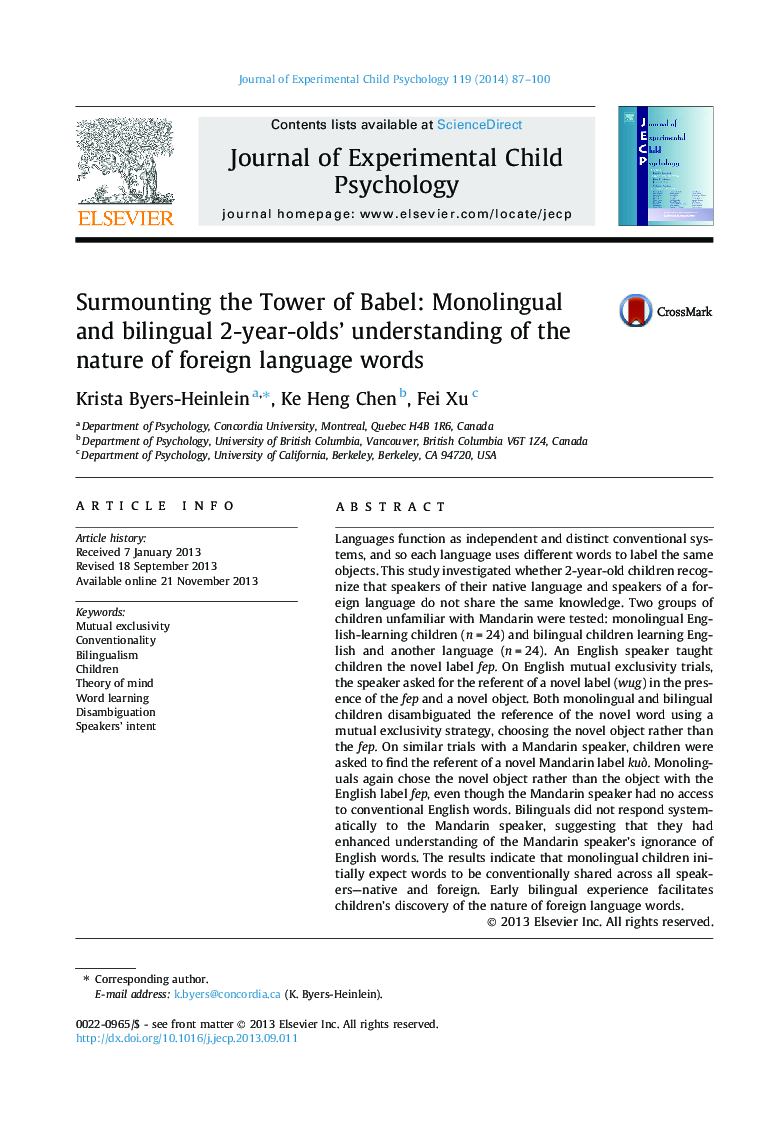| کد مقاله | کد نشریه | سال انتشار | مقاله انگلیسی | نسخه تمام متن |
|---|---|---|---|---|
| 918115 | 1473493 | 2014 | 14 صفحه PDF | دانلود رایگان |
• Do 2-year-olds understand that words are not conventionally shared across languages?
• Children were tested in a mutual exclusivity task with a native and a foreign speaker.
• Monolingual children showed mutual exclusivity with both speakers.
• Bilingual children showed mutual exclusivity only with the native speaker.
• Bilingual experience facilitates the discovery of the nature of foreign language words.
Languages function as independent and distinct conventional systems, and so each language uses different words to label the same objects. This study investigated whether 2-year-old children recognize that speakers of their native language and speakers of a foreign language do not share the same knowledge. Two groups of children unfamiliar with Mandarin were tested: monolingual English-learning children (n = 24) and bilingual children learning English and another language (n = 24). An English speaker taught children the novel label fep. On English mutual exclusivity trials, the speaker asked for the referent of a novel label (wug) in the presence of the fep and a novel object. Both monolingual and bilingual children disambiguated the reference of the novel word using a mutual exclusivity strategy, choosing the novel object rather than the fep. On similar trials with a Mandarin speaker, children were asked to find the referent of a novel Mandarin label kuò. Monolinguals again chose the novel object rather than the object with the English label fep, even though the Mandarin speaker had no access to conventional English words. Bilinguals did not respond systematically to the Mandarin speaker, suggesting that they had enhanced understanding of the Mandarin speaker’s ignorance of English words. The results indicate that monolingual children initially expect words to be conventionally shared across all speakers—native and foreign. Early bilingual experience facilitates children’s discovery of the nature of foreign language words.
Journal: Journal of Experimental Child Psychology - Volume 119, March 2014, Pages 87–100
